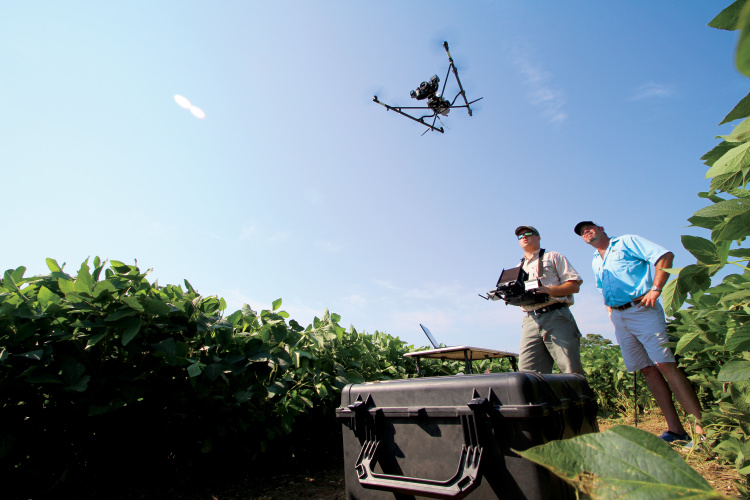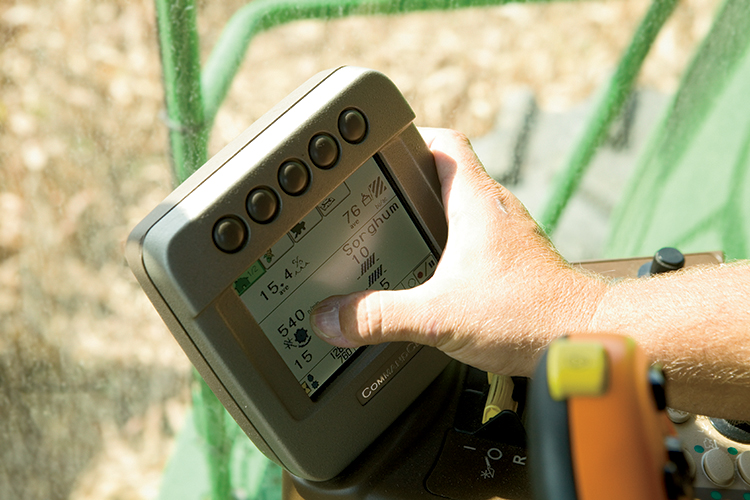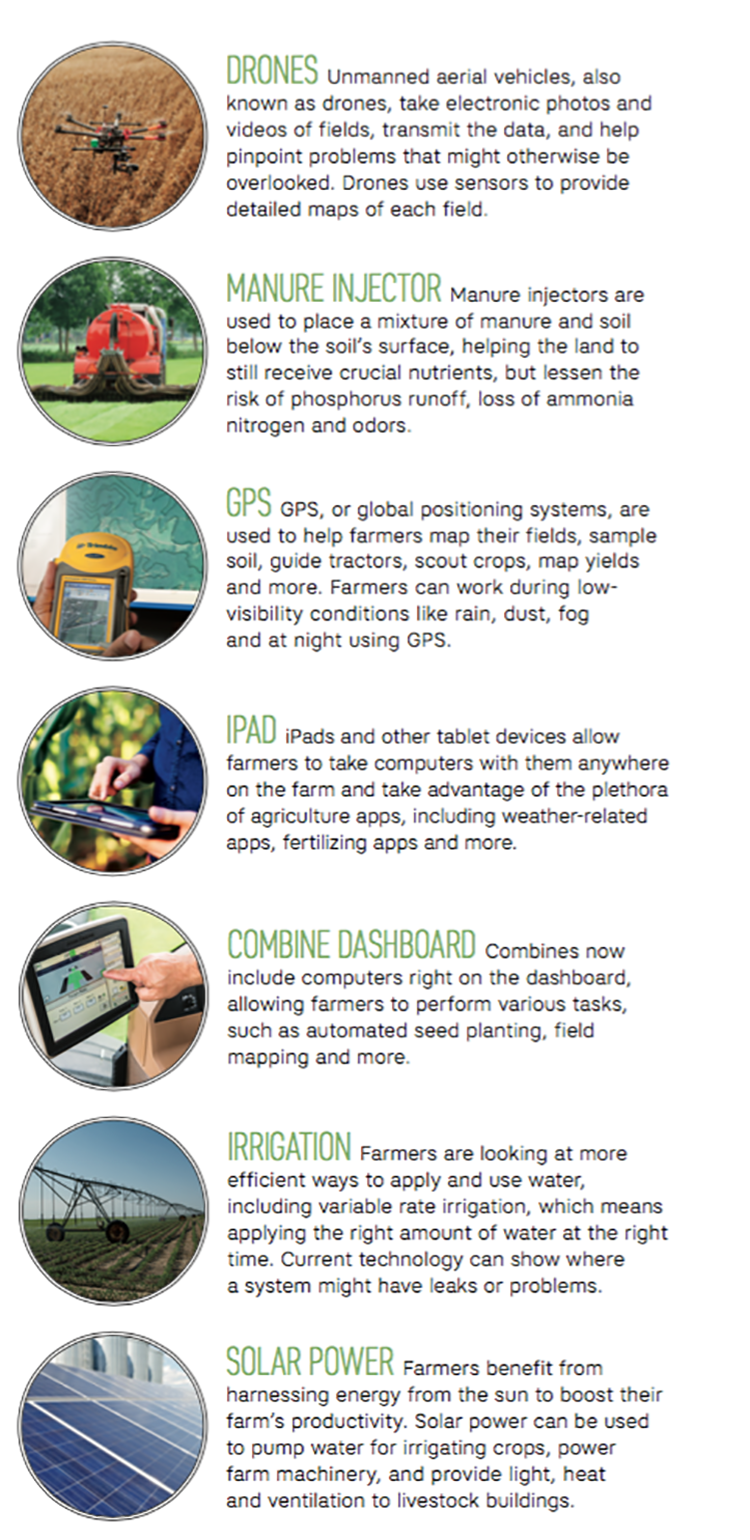Home > Virginia > Virginia Technology > Virginia Tech Field Day Highlights New Advancements in Ag Technology
Virginia Tech Field Day Highlights New Advancements in Ag Technology
In partnership with: Virginia Department of Agriculture and Consumer Services

Some Southwest Virginia farmers are hoping to take their eyes to the sky to track cattle and check miles of cattle-containing fences.
“A lot of producers ask about drones and how they might be able to use them on their farm to monitor livestock or evaluate pastures in some way,” says Morgan Paulette, associate Extension agent in agriculture and natural resources for Pulaski County. “For us here in Southwest Virginia, I think there is a lot of undiscovered and untapped potential with drones and some of the other precision technology that has yet to be adopted.”
In recent years, the Virginia Cooperative Extension and Virginia Tech College of Agriculture and Life Sciences began to integrate precision agriculture into their annual field day at the university’s Kentland Farm in Blacksburg. In 2017, event planners changed the field day’s name to the Kentland Beef & Forage Day, specifically highlighting precision agriculture applications on Southwest Virginia farms during the afternoon session.
As its name implies, precision agriculture focuses on preciseness – precise field applications and precise data collection often using a global positioning system, or GPS. Precision agriculture intends to improve a farm’s profitability, its impact on the environment and its management decision-making capacities, Paulette says. This high-tech segment of agriculture also offers lifestyle benefits, such as reduced fatigue with hands-free, GPS-guided steering in tractors.
“If we’re trying to encourage folks and show the potential benefits of precision agriculture, then we need to get out there and actually demonstrate how things work,” Paulette says.

Hands-on Demonstrations
For farmers in Southwest Virginia who grow row crops for their cattle, the most recent Kentland Farm Field Day highlighted the installation of an auto-guidance system – a modern technology usable even in an older tractor. The technology uses GPS signals to keep the tractor driving straight and hands-free through a field. As a result, operations overlap less to reduce use of seed, fertilizer and pesticides.
But cattle are king in Southwest Virginia, so the field day’s presentation on drones generated great interest. More cattle farmers want to know how to use a drone’s imagery and sensors to monitor for distressed or escaped cattle across large acreages. They want to check miles of fences without the time- consuming task of driving it frequently. And they want an aerial view to spot weeds or the weather’s impact on pasture health.
Paulette is part of a new on-farm study that explores the applications of drones on livestock and forage farms in the region. The project, a joint effort between Virginia Cooperative Extension and Virginia Tech, is led by Paulette, as well as Dr. John McGee and Daniel Cross, both at Virginia Tech.
“The overarching goal of this project is to introduce innovative technology that can be adopted by Extension, local producers and other stakeholders to support increased efficiencies in operations and explore their potential uses on the farm,” Paulette says.
Changing Times
Southwest Virginia’s adoption of precision agriculture rates slow by comparison to other parts of the U.S., Paulette says. The realm of high-tech tools has shown swift adoption in row-crop operations.
Precision agriculture battles misconceptions that relate to costs, learning curves, return on investment and necessity in Southwest Virginia. But, young tech-savvy farmers are joining family-farm operations. Some technologies have proven to pay for themselves, and product costs also have dropped.
“We are trying to inform producers in our area of what’s out there and that it’s becoming more affordable,” Paulette says. “It’s been really exciting to talk with producers and hear their ideas of how a drone may benefit them and their operation and how interested they are in exploring those applications.”




